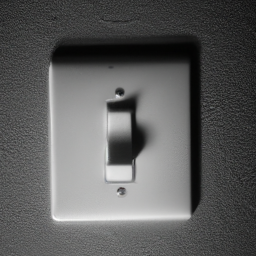
Hello there! In this article, I am going to share some tips with you on how to save money on your everyday expenses. You will learn practical ways to stretch your budget and make your hard-earned money go further. So, if you’re looking to save some extra cash without sacrificing your lifestyle, keep reading!
Firstly, let’s talk about how to cut down on your monthly bills. Look for ways to reduce your energy usage, such as turning off lights when you leave a room or using energy-efficient appliances. You can also try negotiating with your service providers to see if you can get a better deal on your internet, TV, or phone plans. Additionally, review your subscriptions and cancel any that you don’t use or need. These small changes can add up to significant savings in the long run.
Table of Contents
How to Save Money on Everyday Expenses
Are you tired of constantly feeling like your money is disappearing as soon as you earn it? Do you wish you could find ways to save money on everyday expenses without completely sacrificing your lifestyle? Well, you’re in luck! In this article, we will provide you with practical tips and strategies to help you create a budget, cut back on utilities, save on grocery shopping, reduce transportation costs, minimize entertainment expenses, shop smarter, lower housing expenses, trim personal care costs, and maximize savings at restaurants. By implementing these money-saving techniques, you can enjoy a more frugal lifestyle and build a strong financial foundation. So let’s get started!
Creating a Budget
The first step to saving money on everyday expenses is to analyze your current spending habits. Take a look at your bank statements and bills to identify where your money is going each month. Categorize your expenses into different categories such as rent/mortgage, utilities, transportation, groceries, entertainment, personal care, and dining out. This will give you an overview of your financial situation and help you identify areas where you can cut back.
Once you have analyzed your expenses, it’s time to identify unnecessary spending. Are there any recurring payments that you can cancel or downgrade? For example, do you really need that premium cable package or monthly subscription service? By eliminating or reducing these expenses, you can free up more money to put towards your savings or other financial goals.
Speaking of financial goals, it’s essential to set them in order to stay motivated and focused on saving money. Whether your goal is to save for a down payment on a house, pay off debt, or build an emergency fund, having a clear objective will make it easier to make necessary changes to your spending habits.
Cutting Back on Utilities
One area where you can potentially save a significant amount of money is by cutting back on your utility bills. Conserving water and electricity should be a priority. Consider taking shorter showers, fixing leaky faucets, and using energy-efficient light bulbs. Unplug electronics and appliances when not in use to avoid phantom energy usage. Additionally, adjust your thermostat to a slightly higher temperature in the summer and a slightly lower temperature in the winter to reduce heating and cooling costs.
Another way to save on utilities is by switching to energy-efficient appliances. Energy-efficient appliances not only consume less electricity but also tend to have a longer lifespan. When it’s time to replace your old appliances, look for models with an ENERGY STAR rating, as these are designed to be more energy-efficient.
Lastly, don’t be afraid to negotiate with your utility providers for lower rates. Many providers offer discounts or promotions for new customers, so it’s worth calling and asking if there are any available options for reducing your monthly bills.
Saving on Grocery Shopping
Groceries are one of those expenses that can quickly add up if you’re not careful. To prevent overspending, try meal planning and sticking to a list. Plan your meals for the week, make a list of the ingredients you need, and only buy what’s on your list. This way, you’ll avoid impulse purchases and be less likely to waste food.
Using coupons and discount apps can also help you save money on groceries. Keep an eye out for coupons in newspapers, magazines, or online. Many grocery stores also have their own apps or loyalty programs that offer exclusive discounts and coupons. Take advantage of these savings opportunities to stretch your grocery budget further.
Buying in bulk can be another effective way to save money on groceries. Warehouse clubs like Costco or Sam’s Club often offer significant savings on household staples when purchased in bulk. Just make sure you have enough storage space and that the items you’re buying in bulk won’t go to waste before they expire.
Reducing Transportation Costs
Transportation expenses can take up a significant portion of your budget, but there are ways to cut back. Consider carpooling or using public transportation whenever possible. Carpooling with coworkers or friends not only saves money on gas but also reduces wear and tear on your vehicle. Public transportation, on the other hand, can be a more cost-effective option for daily commuting, especially if you live in an area with good public transportation infrastructure.
Maintaining a fuel-efficient vehicle is another way to save on transportation costs. Keep up with regular maintenance, such as oil changes and tire rotations, to ensure your vehicle is running efficiently. Additionally, driving sensibly by avoiding sudden accelerations and excessive idling can improve your gas mileage.
One area where many people overspend on transportation is car insurance. Take the time to compare rates from different insurance companies to ensure you’re getting the best price for the coverage you need. Don’t be afraid to negotiate with your current insurance provider if you find a better quote elsewhere. They may be willing to match or even beat the offer to retain you as a customer.
Minimizing Entertainment Expenses
Entertainment is an essential part of life, but it can also be a significant drain on your finances if not managed wisely. Instead of spending money on expensive entertainment options, try to find free or low-cost activities in your community. Look for local events, festivals, or parks where you can enjoy yourself without breaking the bank.
If you’re a movie or music lover, consider cutting down on subscription services. Evaluate which services you use the most and whether it makes sense to keep all of them. Many streaming platforms offer similar content, so you may be able to find a more affordable option without sacrificing your favorite TV shows or movies.
Sharing entertainment expenses with friends can also help you save money. Instead of subscribing to multiple streaming services or buying individual game or movie tickets, consider sharing the costs with friends or family members. You can split the costs of subscriptions or take turns hosting movie or game nights.
Smart Shopping Strategies
When it comes to shopping, it’s essential to compare prices and look for sales. Before making a purchase, take the time to research prices online and in-store to ensure you’re getting the best deal. Use price comparison websites or apps to find the lowest price for the item you’re looking for.
It’s also important to avoid impulse purchases. Give yourself a cooling-off period before making any non-essential purchases. This will give you time to consider whether you really need the item or if it’s just a temporary impulse.
Cashback apps can be a great way to save money on everyday purchases. These apps offer cashback or reward points for qualifying purchases made through their platform. Simply link your debit or credit card to the app and start earning rewards on your everyday spending. Just make sure to pay off your credit card balance in full each month to avoid interest charges.
Lowering Housing Expenses
Housing is often one of our most significant expenses, so finding ways to lower this cost can have a significant impact on our overall budget. If you have a spare room in your home, consider renting it out to help offset the cost of your mortgage or rent. Websites like Airbnb or Craigslist can help you find reliable tenants or short-term renters.
Negotiating your rent or mortgage terms with your landlord or lender is another way to lower your housing expenses. Before renegotiating, research the current rental or housing market in your area to ensure you’re asking for a fair and realistic reduction in rent or a better mortgage rate.
Reducing energy consumption in your home can also lead to significant savings on your utility bills. Invest in energy-efficient appliances, seal any drafts around windows and doors, and use weatherstripping or insulation to improve your home’s energy efficiency. Additionally, consider adjusting your thermostat to a slightly higher or lower temperature, depending on the season, to further reduce heating and cooling costs.
Trimming Personal Care Costs
Personal care expenses, such as beauty and grooming routines, can quickly add up. Instead of spending money on expensive salon or spa treatments, consider incorporating do-it-yourself (DIY) beauty and grooming routines into your routine. There are plenty of online tutorials and resources available that can teach you how to achieve salon-like results at home for a fraction of the cost.
If you prefer professional services, research budget-friendly options in your area. Many beauty or grooming schools offer discounted services performed by their students under the supervision of experienced instructors. This can be a great way to save money while still enjoying the pampering you deserve.
When it comes to skincare products, don’t assume that more expensive products equate to better results. Take the time to research and read reviews on budget-friendly skincare products. You might be surprised to find that there are affordable options that deliver excellent results without breaking the bank.

Maximizing Savings at Restaurants
Eating out at restaurants can be a significant expense, but with a little planning, you can still enjoy dining out without overspending. One strategy is to eat out strategically. Look for restaurants that offer special deals or promotions, such as happy hours or early bird specials. This way, you can enjoy the dining experience at a lower cost.
Taking advantage of loyalty programs can also help you save money on restaurant meals. Many restaurants offer loyalty cards or apps that reward you with discounts or freebies after a certain number of visits. Sign up for these programs and make sure to use them whenever you dine out to maximize your savings.
Another way to save money at restaurants is by sharing meals or ordering appetizers instead of full entrees. Many restaurant portion sizes are larger than necessary, so sharing a meal with a friend or family member can help you save money while still enjoying a satisfying dining experience.
Conclusion
Implementing these money-saving tips in your everyday life can have a significant impact on your financial well-being. By analyzing your expenses, setting financial goals, and making small changes in various areas, such as cutting back on utilities, saving on grocery shopping, reducing transportation costs, minimizing entertainment expenses, shopping smarter, lowering housing expenses, trimming personal care costs, and maximizing savings at restaurants, you can enjoy a more frugal lifestyle and build a strong financial foundation. Remember, it’s the small changes that add up over time, so start implementing these strategies today and watch your savings grow.











